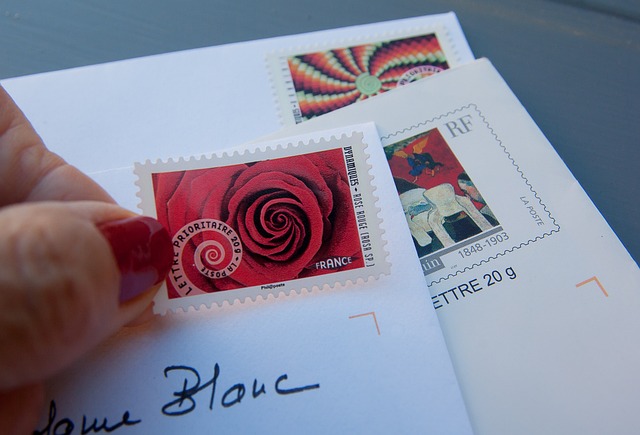In the UK, making accessible cultural content – especially UK Cultural Essays and Analyses through translation services – is vital for building an inclusive society. These services address language barriers, enhance digital accessibility, and promote understanding of diverse heritages among all segments of the population. By employing universal design principles and advanced technologies, translation services ensure that literary works, historical documents, and artistic expressions are not only accessible but also meaningful for non-native speakers. Collaboration between cultural institutions, technology developers, and policymakers is key to implementing these strategies, fostering inclusivity, and preserving Britain's rich cultural tapestry for future generations.
In today’s diverse and inclusive society, enhancing accessibility to cultural content is paramount for fostering understanding and appreciation across communities in the UK. This article explores strategies to democratize access to UK cultural essays and analyses, with a specific focus on translation services as a key enabler. By addressing barriers and leveraging technological innovations, we aim to highlight effective approaches, successful case studies, and future trends shaping the landscape of accessible cultural content, ensuring its richness and availability for all.
- Understanding the Need for Accessible Cultural Content in the UK
- Barriers to Accessing Cultural Essays and Analyses: A Look at the Challenges
- The Role of Translation Services in Overcoming Language Obstacles
- Making Cultural Resources Available to a Diverse Audience
- Strategies to Improve Accessibility: A Comprehensive Approach
- Case Studies: Successful Implementation of Accessible Cultural Content
- Technological Innovations for Enhanced User Experience
- Collaboration Between Arts Organizations and Translation Professionals
- Future Trends and Their Impact on UK Cultural Essays and Analyses
Understanding the Need for Accessible Cultural Content in the UK

In the UK, ensuring accessibility to cultural content is more than just a moral imperative; it’s a vital step towards fostering an inclusive society and enriching lives. Cultural content plays a significant role in shaping our understanding of history, diverse communities, and artistic expressions. However, many barriers exist that prevent certain segments of the population from fully engaging with this wealth of knowledge. From visual impairments to language differences, these obstacles can isolate individuals from participating in cultural activities and enjoying the benefits that come with them.
The need for accessible cultural content is evident when considering the UK’s diverse population. Translation services play a crucial role here, ensuring that content is not only available but also understandable to everyone. By making essays and analyses on cultural topics readily available in various languages, we can bridge communication gaps and encourage a deeper exploration of our shared heritage. This inclusivity is essential for promoting social cohesion and appreciating the richness of UK’s cultural landscape.
Barriers to Accessing Cultural Essays and Analyses: A Look at the Challenges

Accessing cultural essays and analyses can be fraught with barriers, particularly for those in remote areas or with disabilities. In the UK, language is a significant challenge, as many literary works and academic journals are not readily available in local languages, especially lesser-spoken ones. This creates a disparity in access to knowledge, limiting opportunities for cultural exploration and understanding.
Furthermore, digital accessibility plays a pivotal role. While online platforms offer vast resources, they often fail to cater to users with visual or motor impairments. Many websites lack essential features like screen reader compatibility, closed captions, or adjustable font sizes, making it difficult for individuals with disabilities to engage with digital cultural content. UK Cultural Essays and Analyses Translation Services can be a game-changer here, but only if they are designed with universal design principles in mind, ensuring inclusivity from the outset.
The Role of Translation Services in Overcoming Language Obstacles

In today’s diverse society, enhancing accessibility to cultural content is vital for fostering understanding and appreciation among all segments of the population, including those with language barriers. Translation services play a crucial role in overcoming these linguistic obstacles, ensuring that UK Cultural Essays and Analyses reach a broader audience. By providing accurate and nuanced translations, these services enable non-native speakers to engage deeply with literary works, historical documents, and artistic expressions, thereby enriching their cultural understanding of the UK.
Professional translation goes beyond simple word-for-word rendering; it involves conveying not just the meaning but also the subtleties, idioms, and cultural references embedded in the original text. This meticulous process is particularly important when dealing with literary works and essays that rely heavily on linguistic nuances to convey complex ideas and emotions. UK Cultural Essays and Analyses translated through expert hands become accessible bridges, connecting diverse communities with the rich tapestry of British culture.
Making Cultural Resources Available to a Diverse Audience

Making cultural resources accessible to a diverse audience is a key aspect of enhancing inclusivity and fostering an appreciation for different heritages in the UK. Many cultural institutions, such as museums, galleries, and libraries, are actively working towards providing digital access to their collections, making them available to everyone, regardless of location or physical ability. This shift towards digitisation, coupled with the provision of translation services, plays a vital role in reaching a broader spectrum of the population, including those from diverse linguistic backgrounds.
By offering UK Cultural Essays and Analyses in multiple languages, these institutions ensure that cultural content is not only accessible but also understandable to a diverse audience. This approach promotes a deeper engagement with cultural heritage, encouraging visitors to explore and interpret the exhibits in their own unique ways. Such initiatives not only enrich individual experiences but also contribute to a more inclusive society where cultural diversity is celebrated and preserved for future generations.
Strategies to Improve Accessibility: A Comprehensive Approach

To enhance accessibility to cultural content, a comprehensive approach that intertwines technology, policy, and community engagement is necessary. In the UK, one effective strategy involves leveraging translation services to overcome language barriers, ensuring diverse audiences can engage with cultural essays and analyses. Advanced translation tools, supported by professional services, play a pivotal role in making written content accessible to non-native speakers, fostering inclusivity within the cultural sector.
Additionally, digital platforms should be designed with accessibility in mind, incorporating features like text-to-speech, closed captions, and adjustable font sizes. Such adaptations not only benefit individuals with disabilities but also cater to a broader range of users, including those accessing content on mobile devices or in varying lighting conditions. Collaboration between cultural institutions, technology developers, and policy makers is crucial to implement these strategies effectively, ultimately enriching the cultural landscape for all UK residents.
Case Studies: Successful Implementation of Accessible Cultural Content

In the UK, several organizations have successfully implemented accessible cultural content strategies, setting a benchmark for others in the field. One notable example is the British Library’s initiative to digitize and make available rare and historical documents, books, and art pieces online. By employing advanced translation services, they ensure that content is not only visually accessible but also understandable for users from diverse linguistic backgrounds. This approach has significantly increased global engagement with UK cultural essays and analyses, fostering a more inclusive cultural landscape.
Another successful case study involves museums utilizing audio descriptions and sign language interpretation during exhibitions. For instance, the Tate Modern in London offers pre-recorded audio guides that narrate artwork details for visually impaired visitors, enhancing their museum experience. Simultaneously, live sign language interpretations during special events enable deaf individuals to engage with cultural content seamlessly. These inclusive practices not only cater to specific needs but also enrich the overall visitor experience, reflecting a commitment to accessibility within the UK’s cultural sector.
Technological Innovations for Enhanced User Experience

In today’s digital era, technological innovations play a pivotal role in enhancing accessibility to cultural content, particularly for diverse audiences across the UK. Online platforms and apps designed with accessibility in mind offer features such as text-to-speech, closed captions, and adjustable font sizes, ensuring that users with visual or hearing impairments can fully engage with cultural essays and analyses. These tools not only democratise access but also enrich the user experience by catering to individual preferences and needs.
Furthermore, translation services have become integral in bridging language barriers, making a wide range of UK cultural content accessible to non-native speakers. Advanced machine translation algorithms and human translators enable seamless understanding of essays, analyses, and other written materials, fostering a more inclusive environment for all. By leveraging these technological advancements, cultural institutions can significantly expand their reach and impact, contributing to a vibrant and diverse UK cultural landscape.
Collaboration Between Arts Organizations and Translation Professionals

Collaboration between arts organizations and translation professionals is a vital strategy in enhancing accessibility to cultural content, particularly within the UK cultural essays and analyses domain. By partnering with specialized translators, these institutions can bridge the gap between diverse linguistic communities, ensuring that their artistic expressions reach a wider, more inclusive audience. Translation services play a pivotal role in interpreting not just words but also the nuanced cultural contexts, allowing for a deeper appreciation of the original work.
This collaboration fosters mutual growth and understanding. Arts organizations benefit from the expertise of translators who can adapt complex cultural references and metaphors into accessible language while maintaining the essence of the piece. Conversely, translation professionals gain insights into diverse artistic forms, expanding their creative toolkit. Such partnerships are game-changers in making UK cultural essays and analyses more inclusive and thereby enriching the overall cultural landscape.
Future Trends and Their Impact on UK Cultural Essays and Analyses

The future of UK cultural essays and analyses is set to be transformed by technological advancements, particularly in the realm of translation services. With an increasing global audience eager to engage with diverse cultural content, AI-powered translation tools are becoming indispensable. These innovations promise to democratize access to cultural knowledge, enabling a more inclusive exchange of ideas and perspectives. As a result, UK institutions and creators can expect to see a rise in international readership and collaboration opportunities.
This trend will significantly impact the way cultural works are analyzed and interpreted. Advanced translation algorithms can provide nuanced translations, preserving the original essence while reaching a broader spectrum of readers. This development is particularly beneficial for UK Cultural Essays and Analyses Translation Services, as it allows for deeper dives into cross-cultural comparisons and interpretations. By breaking down language barriers, these technologies foster a vibrant global discourse on cultural topics, ensuring that the UK’s rich intellectual heritage remains relevant and accessible worldwide.
The UK’s cultural landscape enriches and reflects its diverse society, making accessible cultural content a vital component for fostering inclusivity. By addressing barriers such as language and physical accessibility, implementing innovative technologies, and collaborating with translation professionals, we can ensure that all members of society have the opportunity to engage with and appreciate UK Cultural Essays and Analyses. This comprehensive approach not only enhances user experiences but also broadens cultural understanding and appreciation across diverse communities. Translation services play a key role in breaking down language obstacles, while technological innovations promise to make content more interactive and engaging. Future trends suggest an exciting path forward, promising even greater accessibility for all.
